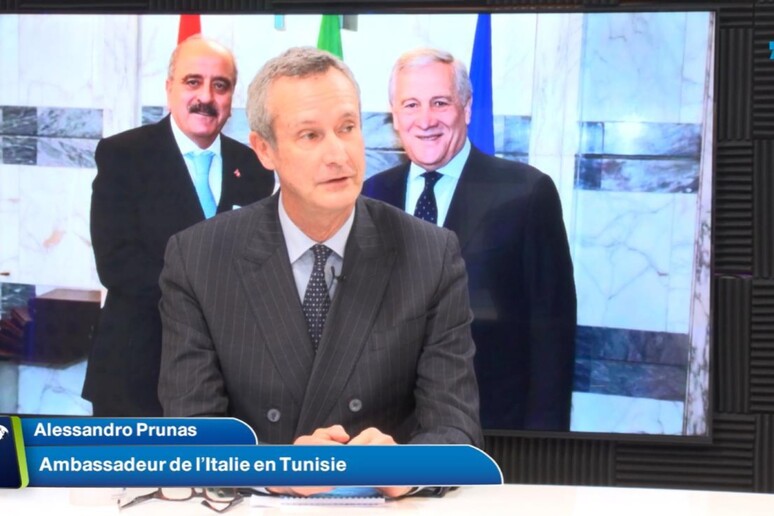"Italy aspires to become a bridge between Tunisia and Europe". This was said - quoting Foreign Minister Antonio Tajani - by the Italian ambassador to Tunis, Alessandro Prunas, in a video interview with the Tap news agency, emphasising at the same time that "Tunisia can be a bridge to Africa for Italy".
The ambassador highlighted the exceptional dynamism of Italian-Tunisian relations, testified to by the large number of institutional visits and bilateral exchanges, starting with that of Prime Minister Giorgia Meloni last April and Foreign Minister Tajani's meeting with his Nafti counterpart on 16 January in Rome. Prunas reviewed the various areas of an "all-round partnership that, in the framework of the Mattei Plan, is based on a model of peer-to-peer cooperation, a source of mutual benefits and opportunities". On the economic front, he recalled that Italy is Tunisia's second largest trading partner, its first supplier and second largest customer, as well as one of the top investors in the country with an entrenched presence of almost a thousand Italian companies.
Numerous ongoing projects were mentioned by the ambassador: the Elmed power line, the SouthH2Corridor hydrogen corridor and MedLink in the field of energy transition; Tanit, financed by the Ministry of Foreign Affairs and the climate fund, in the agricultural and food security sector; various vocational training programmes, including the Ance pilot project and Thamm +, up to the doubling of the endowment for development cooperation and the strengthening of university collaboration.
In the field of migration, stressing that no state can "tackle this phenomenon alone", Prunas highlighted the holistic nature of the Italian strategy, which is part of the Rome process launched in July 2023 with the International Conference on Migration and Development. "It is a wide-ranging strategy that goes far beyond the securitarian approach alone," the ambassador said. (ANSA)
ALL RIGHTS RESERVED © Copyright ANSA











